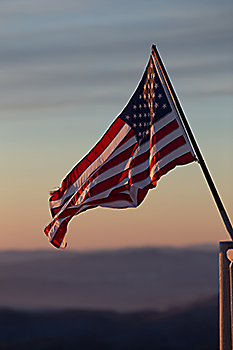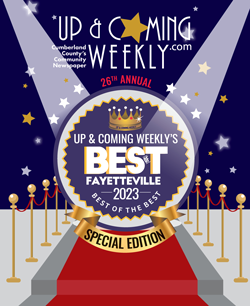
In her classic novel Little Women, Louisa May Alcott has her character Margaret gaze bitterly at the family’s frostbitten garden and proclaim that “November is the most disagreeable month in the whole year.”
The protagonist, her sister Jo, offers a pensive reply: “That's the reason I was born in it.”
I don’t see November that way. I’m far from alone. According to a recent survey, it’s January that better deserves Margaret’s disdain. Nearly a third of Americans say it’s their least favorite month. Only 4% picked November.
The latter’s selling points include the lingering beauty of autumn leaves, the poignant solemnity of Veteran’s Day, and, especially, the holiday of Thanksgiving. Its indispensable premise is that, even after a year of mishaps or tragedies, there will always be much to be grateful for — and that the best way to demonstrate that gratitude is to share your time and table with family and friends.
One of the blessings for which we should regularly give thanks is that we live in the United States of America. For all its past sins and present shortcomings, our country remains a marvel, a model, and a miracle.
Our founding principles — freedom, self-government, and equality before the law — set America apart from other nations, even though they were not consistently respected or applied at the time. As Martin Luther King famously put it, the Founders were “signing a promissory note to which every American was to fall heir.” It was that promise that made America exceptional.
November isn’t just home to the Thanksgiving holiday. It contains the anniversaries of many events Americans ought to study and commemorate. On November 15, 1777, the Continental Congress finalized the Articles of Confederation, what might be called the initial “operating system” of the national government. A little over five years later, on November 30, 1782, representatives of Great Britain and the new United States signed a provisional peace treaty that brought hostilities to a close, though the Revolutionary War wasn’t formally ended until the signing of the Treaty of Paris a few months later.
As it happens, some of the greatest musical celebrations of America are also associated with this month.
On November 11, 1938, Kay Smith debuted the Irving Berlin-penned “God Bless America” to her nationwide radio audience. John Phillip Sousa, whose many compositions include “The Stars and Stripes Forever” and the Marine Corps march “Semper Fidelis,” was born in November, as was Aaron Copland, who wrote such now-familiar Americana as “Appalachian Spring” and “Rodeo.”
My historical-fantasy series, the Folklore Cycle, is itself meant partly as an expression of gratitude for our great country. The first novel, Mountain Folk, is set primarily during the 1760s and 1770s. I use a combination of real-life and imaginary characters to depict the American Revolution in all its scope and complexity.
In my novels and short stories, I don’t sugarcoat history. My characters include religious dissenters, Cherokee leaders, and abolitionists such as Sojourner Truth. They are among the American heroes I celebrate, and for whom we should all be grateful this month and every month.
Editor's Note: John Hood is a John Locke Foundation board member. His latest books, Mountain Folk and Forest Folk, combine epic fantasy with early American history (FolkloreCycle.com). Mr. Hood's article has been edited down from the original.

 How to resolve AdBlock issue?
How to resolve AdBlock issue? 









